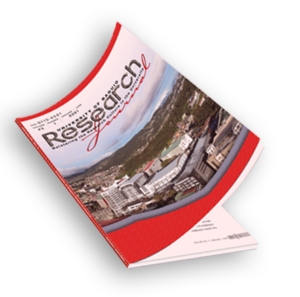
Task force on anti-littering and illegal/indiscriminate dumping of solid wastes of Baguio City
ABSTRACT
The study assessed the effectiveness of the “Task Force on Anti-Littering and Illegal/Indiscriminate Dumping of S/olid Wastes” in their compliance and implementation of the provisions on the laws on anti-littering and the illegal, indiscriminate, and descriptive-survey research design. The results of the survey questionnaires were further validated through group discussions and interviews from several officers of the CEPMO and the barangays included. The study included thirty-six (36) respondents. The study found out that the Task Force moderately implemented the provisions of the anti-littering and indiscriminate and unsanitary disposal of solid waste management of the City. However, the respondents were dismayed in the level of implementation of the Task Force of their responsibility to monitor the compliance of residents in the segregation of garbage at source; compel residents to bring out their garbage only during the scheduled pick-up days and time; ensure that violators shall have paid their fines with the appropriate office or shall have served their sentence as prescribed by the courts and to regularly submit report to the city mayor. They likewise mentioned that barangays were recognized by several awards they had received with regards to the cleanest and greenest barangays which in the award, waste disposal and caring of the environment was included as one of its criteria, thus, barangays not included in the lists for barangays awarded are encouraged to improve. On the contrary, the provision on the designation of garbage disposal bins was perceived very much implemented and was very much appreciated by the respondents as a very good and very proper process to address the improper waste disposal which was appreciated by several tourists who frequently visit several tourist destinations of the city. The study found out that the collection and transportation of waste came out to be the most implemented while disposal of solid waste was the least implemented indicator. Moreover, the respondents perceived that the Provisions on Anti-Littering and Indiscriminate and Unsanitary Disposal of Solid Waste Management of Baguio City were moderately implemented. Further, the study found that that there is a moderately high correlation between the extent of the Task Force Compliance and the extent of implementation of the Provisions on Anti-Littering and Indiscriminate and Unsanitary Disposal of Solid Waste Management of Baguio City. The study concludes that solid waste management is a human obligation to fulfill. The inefficiency and failure to sustain proper solid waste management is a societal, environmental, economic, and political issue. Further, managing waste is a problem because of the increasing of waste production levels as the outcome of urbanization and growth in economic.
Authors
Mark Anthony Baliton1 and Dr. Avelina Garcia2
1Faculty, School of Teacher Education and Liberal Arts
University of Baguio, Baguio City, Philippines
2Faculty, Graduate School
University of Baguio, Baguio City, Philippines
Keywords
Anti-Littering, Indiscriminate, Unsanitary Disposal of Solid Waste Management biodegradable, population, solid waste
Issue
University of Baguio Research Journal
Vol. 45, No. 2 | July – December 2021
Published
- August 31, 2022
ISSN Information
(online) ISSN 2945-3321
This work is licensed under
CC BY-NC-ND 4.0

In this issue
Contact Us
- [email protected]
- [email protected]
- (074) 442-3036
- 77 General Luna Road, Baguio City Philippines 2600
